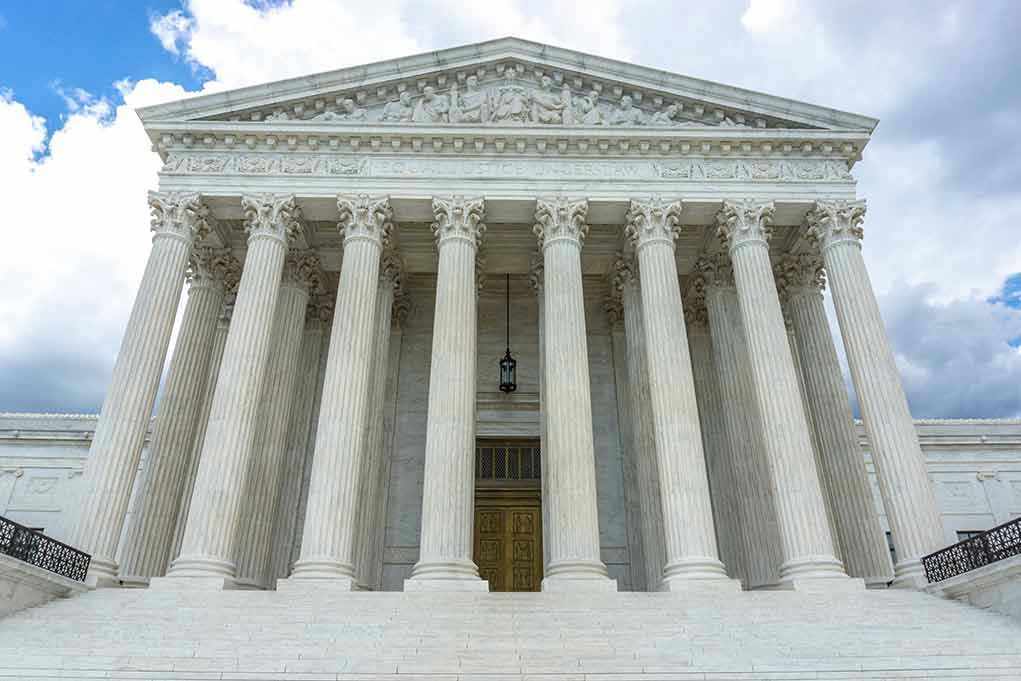
The Supreme Court’s latest order allows ICE to resume aggressive immigration raids in Los Angeles, immediately reviving concerns over constitutional rights and federal overreach.
Story Snapshot
- The Supreme Court lifted restrictions on Trump’s aggressive ICE tactics in Los Angeles, enabling large-scale raids based on ethnicity, language, and occupation.
- The unsigned 6-3 decision reverses prior court rulings that blocked these measures as likely unconstitutional.
- The ruling is temporary but has immediate sweeping effects, reigniting national debate over immigration enforcement and civil liberties.
- Strong dissent among liberal justices and advocacy groups centers on fears of racial profiling and erosion of constitutional protections.
Supreme Court Removes Limits on ICE Raids in Los Angeles
The U.S. Supreme Court issued an unsigned order that lifted lower court restrictions on Immigration and Customs Enforcement (ICE), granting the Trump administration authority to resume aggressive “roving patrols” and mass deportation arrests in Los Angeles and surrounding counties. ICE can now conduct stops and detentions based on factors such as ethnicity, language, occupation, or location, which critics argue opens the door to unconstitutional racial profiling. The order is temporary but takes immediate effect, directly impacting immigrant communities and escalating the ongoing legal battle over the reach of federal immigration enforcement.
The Supreme Court’s decision reverses two prior rulings by lower courts that found ICE’s tactics likely violated Fourth Amendment protections against unreasonable searches and seizures. Those courts had previously issued a temporary restraining order (TRO) that blocked ICE from making stops based on race, language, or occupation. With the TRO lifted, ICE resumed aggressive patrols across Southern California, sparking both celebration among federal agencies and alarm among advocacy groups and local officials. The next court hearing to consider a longer-term injunction is scheduled for September 24, 2025, but until then, the Trump administration’s enforcement powers remain unchecked in this region.
Federal Power vs. Constitutional Rights: A Deepening Divide
This Supreme Court order highlights the ongoing tension between federal authority and constitutional limits, especially regarding the Fourth Amendment. The majority of justices, including Justice Kavanaugh, signaled that ethnicity can be considered a “relevant factor” in immigration stops—though not the sole reason. In stark contrast, liberal justices, led by Justice Sotomayor, issued strong dissents warning the decision enables targeting people based on appearance, language, or occupation. This split echoes a wider national debate: supporters of the ruling argue it is necessary for public safety and enforcing the law, while critics contend it enables racial profiling and undermines civil liberties.
U.S. immigration enforcement has historically sparked controversy over the balance between national security, the rule of law, and individual rights. The Trump administration has consistently prioritized tough, visible enforcement, particularly in sanctuary cities and areas with large immigrant populations. Los Angeles, a focal point for both federal action and local resistance, now finds itself at the center of a renewed showdown between Washington’s power and California’s local priorities, with the Supreme Court’s conservative majority shaping the legal landscape.
Immediate and Long-Term Impact on Communities and Policy
The immediate effect of the Supreme Court’s decision is the resumption of ICE raids, detentions, and large-scale immigration sweeps in Los Angeles and neighboring counties. These tactics have heightened fear and anxiety among immigrant families, including legal residents and U.S. citizens who may be targeted due to their appearance or language. Advocacy groups and local officials warn of the dangers to community trust, public safety, and civil rights. Meanwhile, federal officials frame the ruling as a win for law enforcement and a step toward deterring illegal immigration, arguing it targets “criminal illegal aliens.” The controversy has triggered increased protests, legal challenges, and an intensified debate over immigration policy nationwide.
Long-term, the Supreme Court’s order could set a precedent expanding federal authority for immigration stops based on broad, subjective criteria—a shift with significant implications for constitutional protections and civil rights. Legal experts caution that this move undermines the Fourth Amendment, opening the door to government overreach and racial profiling. The fallout may include a surge in litigation, strained relationships between federal and local authorities, and broader economic and social impacts as communities grapple with fear and uncertainty. As the legal process continues, the outcome of further court hearings and ongoing national debate will determine how far federal power can reach and at what cost to American constitutional values.
Supreme Court OKs Trump’s L.A. immigration sweeps, says ethnicity ‘relevant factor’https://t.co/PapqeSqfs4 pic.twitter.com/TCudrluIES
— The Washington Times (@WashTimes) September 8, 2025
Expert Perspectives and Legal Analysis
Legal scholars and civil rights advocates are united in warning that the Supreme Court’s decision could erode core constitutional protections. They point out that the order was unsigned and lacked a formal legal rationale, raising concerns about transparency in judicial decision-making. Civil liberties organizations emphasize the risk of wrongful detention and the chilling effect on immigrant communities, while legal analysts highlight the increasing use of the Supreme Court’s emergency docket for transformative policy decisions. Supporters of the ruling—including the Department of Homeland Security and some law enforcement groups—see it as a necessary measure for restoring order and upholding the rule of law amid persistent illegal immigration and policy gridlock in Congress.
Sources:
ABC News: Supreme Court lifts restrictions on Trump immigration tactics in California
ACLU of Southern California: U.S. Supreme Court Grants Stay in L.A. Raids Case




